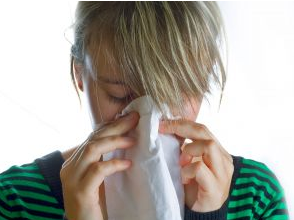
A whooping cough outbreak which has killed 10 babies in the UK highlights the need for pregnant mothers to get vaccinated.
The UK is seeing its worst whooping cough outbreak for decades with ten babies killed and over 6,121 cases reported this year. Whooping cough is highly contagious bacterial infection passed from person-to-person by droplets in the air from coughing or sneezing. Newborn babies are most at risk of death from the disease.
Whooping cough usually starts with mild symptoms which develop into the intense coughing bouts with the distinctive “whooping” sound which give the disease its name. Globally it affects 16 million people a year with 95% of cases found in developing countries. It is still a major public health concern however, even in countries with high vaccination rates.
Newborn babies are too young to be protected by the standard vaccinations which start at two months. This has led to a nationwide campaign in the UK for pregnant women to be vaccinated. Women between 28 and 38 weeks pregnant are being encouraged to get the injection to boost their immunity, which is then passed on to their baby.
Expatriates families are advised to check with their local doctor regarding immunisations as many expats won’t be familiar with local vaccination practices and risks. “We recommend that families with young children in particular should check on the need for vaccinations for conditions such as whooping cough, as rates vary considerably around the world,” MediCare International Managing Director Debbie Purser said.
“Indeed, even the UK is experiencing something of a mini epidemic at present, despite a well-organized vaccination programme.”
Experts are unsure why the UK is seeing such elevated cases of whooping cough this year, particularly when the vaccination uptake is at a high. One theory is the bacterium that causes the infection has mutated. Another theory links the outbreak to the tighter control of whooping cough. Repeated exposure to the illness boosted people’s protection in the past.
Image: Evah (sxc.hu)